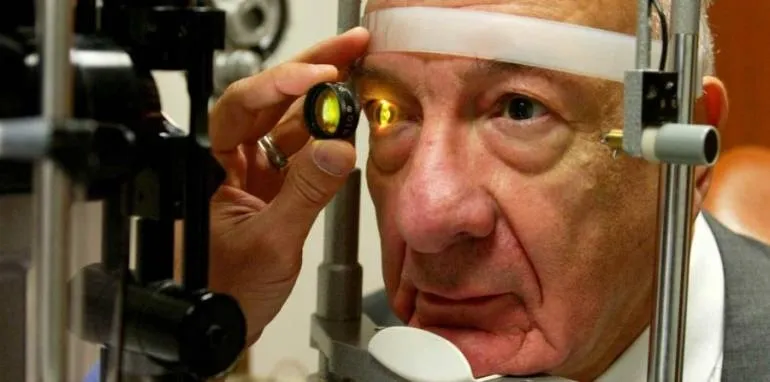In Argentina there are about 1,500,000 diabetics: between 4 and 5% of the population and it is estimated that half of them ignore that it suffers from this disease.One of the offices enabled in our city for free control is the Rafaela Eye Clinic: Bolívar Street 133.
The Argentine Ophthalmology Council announces a new edition of its free campaign for diabetic patients whose purpose is to detect or rule out the presence of a pathology that can cause blindness.One of the venues enabled in our city for its realization is the Rafaela Eye Clinic and will be directed by Dr. Paul Schvarzstein as every year.
- What is it?It is a national campaign to prevention of diabetes.
- Who is he directed?To diabetic patients, exclusively.
- Who organizes it?The Argentine Council of Ophthalmology, the institution that brings together all the oculists of the country.
- Since when is this campaign organized?Since 1999, once a year.30,000 diabetic patients have already been treated since then.
- When?On Thursday, November 30 and Friday, December 1, 2017.
- What venues and schedules?In Rafaela Eye Clinic on Bolívar Calle 133 of our city from 8 to 12 hours.
- Do you have any cost for patients?No, it is absolutely free.
- Should the patient ask for a turn?You must communicate to 501800 to advertise.
- What is the exam?A background is performed, a painless exam that lasts a couple of minutes.
- What happens as a result of the exam?The patient is communicated if he is developing a pathology or not.Information about diabetes and blindness is also offered.
On Thursday, November 30 and Friday, December 1, 2017, the Argentine Council of Ophthalmology (CAO) will organize the 19th Annual and Consecutive Edition of the National Campaign for Diabetes Prevention.
During that day, hundreds of ophthalmologists from all over the country will serve diabetic patients for free to detect or rule out the presence of diabetic retinopathy, a harmful disease for visual health that can cause blindness.The action will consist of the realization of eye funds, a rapid and painless examination that serves to quickly detect the presence of this pathology.
The campaign will be carried out in different public and private ophthalmological centers and will be coordinated by Dr. Guillermo Iribarren, head of the Ophthalmology Service of the German Hospital and member of the Social Action Commission and Prevention of CAO blindness.
What is diabetic retinopathy?
It is a complication of diabetes caused by the deterioration of the arteries and veins that irrigate the retina, a layer of nerves that covers the eye inside and whose function is to perceive the light and images that will reach the brain.Damage to blood vessels may decrease vision or distort the images.It usually has no symptoms and the risks of developing it increase with the progress of the disease and with bad blood glucose control.
How is diabetic retinopathy diagnosed?
The ophthalmologist examines the background (retina, macula and optical nerve), usually resorting to the dilation of the pupils, which is achieved by applying drops.It is a fast and painless process.If the presence of diabetic retinopathy is checked, other studies can be carried out to determine if the case requires treatment.
Why is prevention important?
Diabetes is the second cause of blindness in industrialized countries and the main one in people aged 25 to 74.In Argentina there are about 1,500,000 diabetics: between 4 and 5% of the population and it is estimated that half of them ignore that it suffers from this disease.Almost all diabetic patients will develop some degree of retinopathy throughoutof his life.
Since 1999, more than 30,000 diabetic patients have been treated for free.40% of them had lesions compatible with diabetic retinopathy and 9% showed advanced forms of the disease, which were derived for their corresponding treatment.It was also found that 1% of patients had blindness for diabetes.
It is necessary to inform the diabetic population about the need to perform ophthalmological controls with an eye exam at least 1 time per year.The early detection of the ocular disease allows the indicated treatment to be performed and reduce the percentage of patients who reach blindness due to diabetic retinopathy.
For more information about this and other issues related to visual health, do not hesitate to consult us.
The Argentine Council of Ophthalmology reminds the population that the treatment of man's disease, their detection, prevention and protection of health are the object of medicine and that the ophthalmologist is the only professional with sufficient training to performThis task within its area of incumbency.


